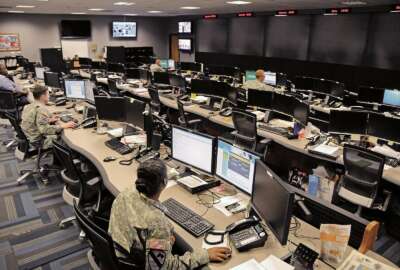Army develops its approach to electronic warfare
Recent studies and exercises have shown that the Army needs a layered approach to EW and that the electromagnetic spectrum should be treated as terrain.

The Army’s Rapid Capabilities Office is barely a month old, but Army leaders already have a strong idea of what they want the new organization to pursue….